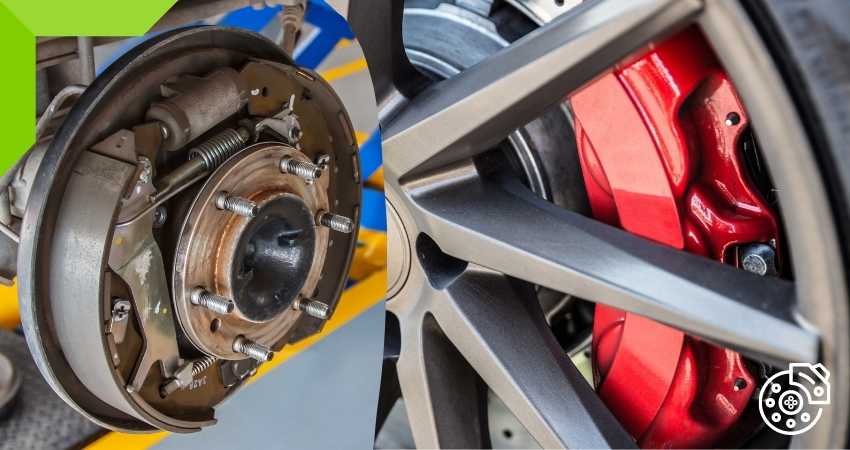Have you ever wondered how an EV braking system differs from gas-fueled cars? Brakes for Evs work almost the same way as any gas fuel car brakes. The only difference is that EVs use brake-by-wire technology that powers your brakes with electricity.
EVs and gas-fueled cars have almost the same brakes, but their braking systems differ. The regenerative braking system in an EV is an electronic braking system, whereas they do have a hydraulic braking system as a backup in case of failure. If your car loses power, your EV will switch to a typical hydraulic system.
Let’s First Understand the Braking System of EVs
The energy required to move an EV is taken from its battery powered by electricity. When we accelerate, the energy flows from the battery into the electric motor and drives it.
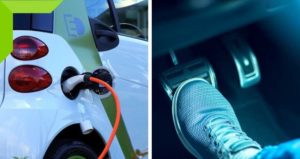
The vehicle starts to decelerate as the force from the actuator pedal is released. As a result, power to the motor from the battery is stopped. The car begins to slow down due to the aerodynamic drag, rolling friction, and other forces opposing the vehicle’s movement.
But those forces aren’t sufficient to stop the vehicle; here, we need a hydraulic brake to stop the car.
Hydraulic Braking System
A hydraulic brake is a braking mechanism that uses fluid, typically containing glycol ethers or diethylene glycol, to transfer pressure from the controlling mechanism to the braking mechanism.
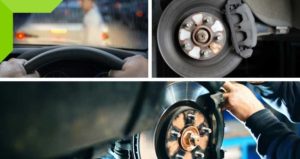
So when a hydraulic brake is applied, the kinetic energy is converted to heat energy at the brake, and the vehicle stops.
Regenerative Braking System
The regenerative braking system is unique to EVs. It’s an energy recovery mechanism that slows down a moving EV by converting its kinetic energy that would have been lost as heat energy in the battery into a form that can be either used immediately or stored.
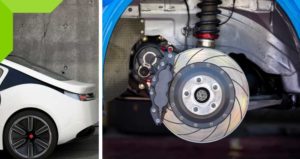
Due to this system, the electric vehicle acts as a generator during the deceleration and braking to convert the kinetic energy to electric energy.
Below we will discuss hydraulic brakes in detail.
What Are Hydraulic Brakes?
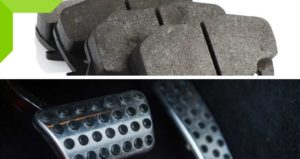
Hydraulic brakes are braking system that uses liquid for their operation. It’s a highly efficient braking system since it’s self-lubricating. No external lubrication is required. It’s beneficial in case of power failures and all-electric brakes malfunction.
Now let’s understand how they work:
How Do Hydraulic Brakes Work?
The principle on which hydraulic brakes work is pressure over the area, The force applied to a liquid becomes equally distributed throughout its container. The master cylinder piston area is smaller than the caliper piston area or the pistons in drum brakes called wheel cylinders which gives a mechanical advantage. The actual amount varies with each model.
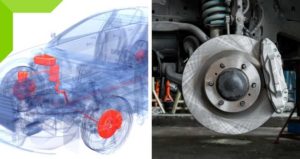
In a hydraulic brake system, when the brake pedal is pressed, a pushrod exerts a force on the piston(s) in the master cylinder, causing fluid from the brake fluid reservoir to flow into a pressure chamber. This increases the pressure of the entire hydraulic system, forcing fluid through the hydraulic lines toward one or more calipers. The brake caliper pistons then apply force to the brake pads, pushing them against the spinning rotor, and the friction between the pads and the rotor causes a braking torque, slowing the vehicle. The heat generated by this friction is either dissipated through vents and channels in the rotor.
Why Do Electric Cars Need Hydraulic Brakes?
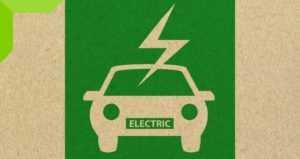
Electric cars have regenerative braking, substantially reducing the need for hydraulic braking. However, there are limitations. With regenerative braking, you are using the motors as generators and recharging the batteries.
Read: Can a Tesla Pull a Plane? A Surprising Yes!
Only Using Regenerative Braking Is Not Helpful
- The ability to hold a car in place when stopped is essential, and an AC motor can’t do this ( it could be by a mighty stepper motor, but generally, it is very complicated and inefficient) as such brakes are a more straightforward solution to the various design requirements that are not covered by standard regenerative braking.
- So your EV still uses standard brakes like hydraulic brakes because your regenerative braking system alone can’t stop your EV quickly. For instance, let’s say you’re about to crash into another car, and your battery runs out.
If Your Electric Car Shuts Down

In an emergency, you need more stopping power than an electric motor. A full battery can’t hold any more charge. Push on the brake lever and put pressure on the hydraulic brake system. This might shut down the regenerative braking system anytime due to safety concerns. You might still want to brake, which is only possible with an independent braking system.
Advantages of Hydraulic Breaks
- One of the advantages of having a hydraulic braking system is that it can generate impressive pressure and stop your car.
- The Hydraulic Brakes wear out less than the mechanical Brakes because of the absence of joints in their construction.
- The frictional loss at high-speed braking is reduced since the brake fluid also acts as a lubricant.
- Hydraulic Brakes produce less thermal stress compared to Mechanical Braking.
Disadvantages of Hydraulic Brakes
- Handling hydraulic fluids is messy. If hydraulic fluid leaks in hot areas, it may catch fire.
- If the brake-fluid leak out, it may ruin the brake shoes.
- High moisture in the environment can change the quality of the hydraulic fluid and cause corrosion of the internal components.
Conclusion
Hydraulic brakes are an essential part of Ev’s braking system. They are necessary for safety. Electric power running out is a very expected probability in EVs. Better safe than sorry!

